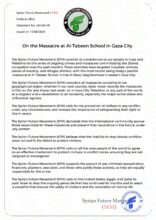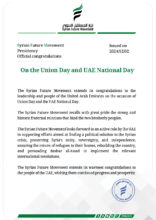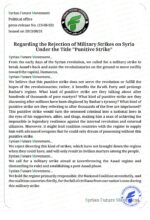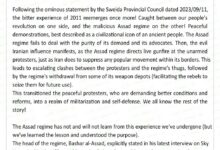The International Day for the Victims of Enforced Disappearances
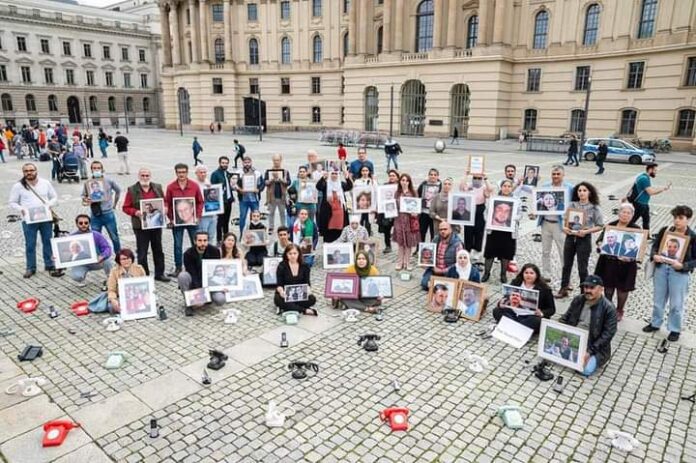
Enforced disappearance is a grave violation of human rights, involving the detention or abduction of an individual by a state, organization, or individual with the state’s knowledge, consent, or complicity, without disclosing their fate or whereabouts, thus depriving them of legal protection. Enforced disappearance is a crime against humanity, posing a risk to the lives, safety, and freedom of the disappeared and their families.
The United Nations General Assembly adopted August 30th as the International Day for the Victims of Enforced Disappearances, aiming to remind the world of the tragic impacts of this practice and to pressure nations to take effective measures to prevent it, end it, and hold those responsible accountable. This observance also seeks to support the rights and dignity of the disappeared and their families and advocate for their cause.
According to the United Nations, there are thousands of reported cases of enforced disappearances worldwide under various circumstances and contexts, such as armed conflicts, humanitarian crises, and situations witnessing gross human rights violations. Many cases remain unknown or unreported due to the challenges faced by the victims and their families in reporting their cases and obtaining necessary information.
According to the United Nations, 72 countries, representing about 37% of UN member states, are currently parties to this convention. This means 121 countries have not yet ratified the convention and thus do not adhere to its obligations and controls. Among the countries that have not ratified the treaty, some witness ongoing or recurrent enforced disappearances, like Syria, Iraq, China, and Russia.
Enforced Disappearances in Syria:
Thousands of Syrians have suffered from this issue since the outbreak of the revolution in Syria in 2011. They have faced enforced disappearances at the hands of the Syrian regime, armed opposition groups, SDF, and terrorist organizations.
The fate and whereabouts of most of these disappeared individuals remain unknown, causing distress and pain to their families and creating an atmosphere of mistrust and conflict in society.
One can mention the experience of the Violations Documentation Center in Syria (VDC), a non-governmental organization established in 2011 to monitor and document human rights violations in Syria by all parties. The center works to collect, analyze, and publish information about the victims of these violations, including those who are forcibly disappeared.
What is required from the international community to combat the phenomenon of enforced disappearance in Syria:
- Exerting political and diplomatic pressure on the Syrian regime, considering it the primary responsible party for the vast number of enforced disappearances, uncovering their fate, revealing their places of detention, releasing them, or handing over their bodies to their families, and cooperating with international and regional human rights organizations, and committing to the International Convention for the Protection of All Persons from Enforced Disappearance.
- Providing financial, technical, and legal support to civil organizations and families working on documenting and monitoring cases of enforced disappearance and defending the rights of the disappeared and their families, and enhancing their capabilities in collecting, preserving, and analyzing information and evidence.
- Providing humanitarian, psychological, and health assistance to victims and their families, alleviating the suffering they face due to the loss of their loved ones or the uncertainty of their fate, and improving their living conditions.
- Supporting initiatives aimed at promoting a culture of human rights and peace in Syrian society, and encouraging solidarity and dialogue among the various parties affected by enforced disappearance, and achieving national reconciliation.
Some mechanisms used by civil society to pressure governments on the issue of enforced disappearance:
- Submitting reports and complaints to international and regional human rights organizations, such as the Working Group on Enforced or Involuntary Disappearances, or the Committee on Enforced Disappearances, or the European Court of Human Rights, or the African Court on Human and Peoples’ Rights, or the International Commission on Missing Persons.
- Organizing awareness, solidarity, mobilization, and advocacy campaigns at local, regional, and international levels, to raise attention to the issue of enforced disappearance and its impact on human rights, democracy, and peace, and to demand independent, transparent, effective investigations, holding those responsible accountable, and compensating the victims.
- Forming networks and alliances with other civil society organizations working on issues related to enforced disappearance or its victims, whether at the national, regional, or international level, to exchange information, expertise, tools, and resources, and to strengthen coordination, cooperation, and mutual support.
- Developing their capabilities in collecting, preserving, and analyzing information and evidence about cases of enforced disappearance, using technology and innovation, and benefiting from trainings and workshops provided by specialized organizations.
Therefore, we in the Syrian Future Movement, emphasize the necessity to take this opportunity to raise awareness about the seriousness of this issue and show solidarity with its victims and their families.
The Syrian Future Movement calls for the abolition of all forms of enforced disappearance, ensuring the rights of the disappeared to know their fate, and preserving the right of their families to know the truth about what happened to them.
The Syrian Future Movement calls for the application of the UN guiding principles to determine the fate of the enforced disappeared, their places of detention, and other relevant international standards.
The Syrian Future Movement stresses that enforced disappearance is not just a violation of individual human rights, but it’s also a violation of humanity itself.
